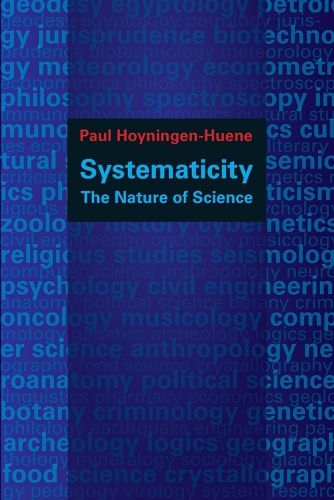Readings Newsletter
Become a Readings Member to make your shopping experience even easier.
Sign in or sign up for free!
You’re not far away from qualifying for FREE standard shipping within Australia
You’ve qualified for FREE standard shipping within Australia
The cart is loading…






In Systematicity, Paul Hoyningen-Huene answers the question What is science? by proposing that scientific knowledge is primarily distinguished from other forms of knowledge, especially everyday knowledge, by being more systematic.
Science is here understood in the broadest possible sense, encompassing not only the natural sciences but also mathematics, the social sciences, and the humanities. The author develops his thesis in nine dimensions in which it is claimed that science is more systematic than other forms of knowledge: regarding descriptions, explanations, predictions, the defense of knowledge claims, critical discourse, epistemic connectedness, an ideal of completeness, knowledge generation, and the representation of knowledge. He compares his view with positions on the question held by philosophers from Aristotle to Nicholas Rescher. The book concludes with an exploration of some consequences of Hoyningen-Huene’s view concerning the genesis and dynamics of science, the relationship of science and common sense, normative implications of the thesis, and the demarcation criterion between science and pseudo-science.
$9.00 standard shipping within Australia
FREE standard shipping within Australia for orders over $100.00
Express & International shipping calculated at checkout
In Systematicity, Paul Hoyningen-Huene answers the question What is science? by proposing that scientific knowledge is primarily distinguished from other forms of knowledge, especially everyday knowledge, by being more systematic.
Science is here understood in the broadest possible sense, encompassing not only the natural sciences but also mathematics, the social sciences, and the humanities. The author develops his thesis in nine dimensions in which it is claimed that science is more systematic than other forms of knowledge: regarding descriptions, explanations, predictions, the defense of knowledge claims, critical discourse, epistemic connectedness, an ideal of completeness, knowledge generation, and the representation of knowledge. He compares his view with positions on the question held by philosophers from Aristotle to Nicholas Rescher. The book concludes with an exploration of some consequences of Hoyningen-Huene’s view concerning the genesis and dynamics of science, the relationship of science and common sense, normative implications of the thesis, and the demarcation criterion between science and pseudo-science.